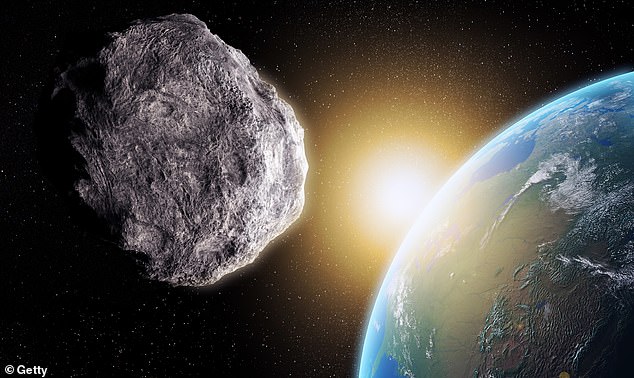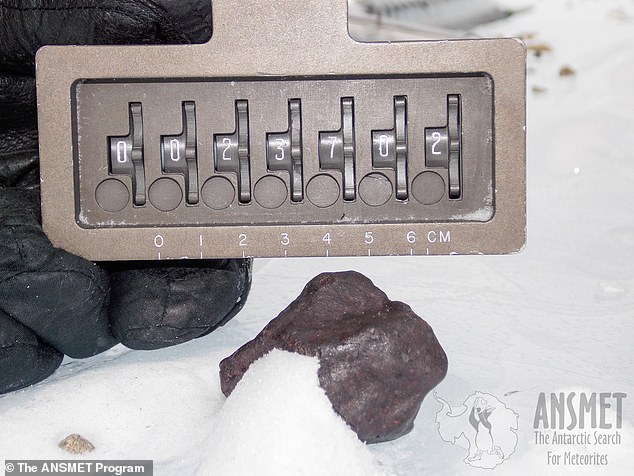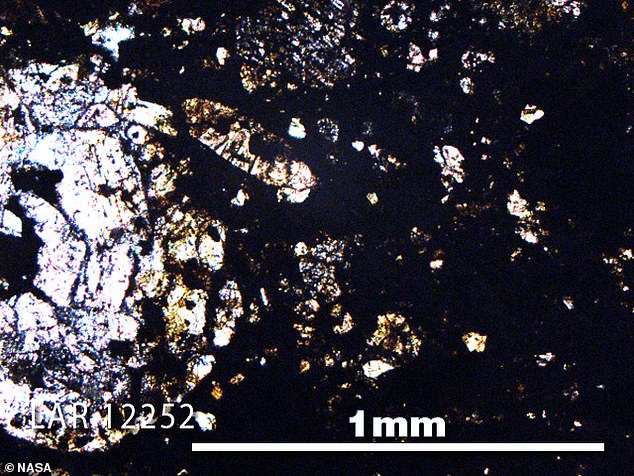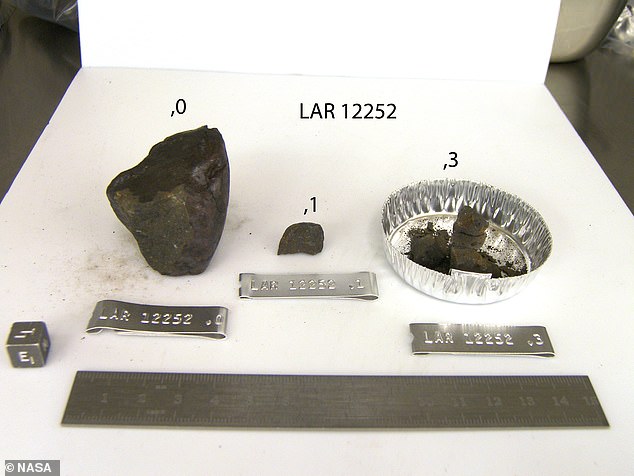- EXPLORE FURTHER: Researchers puzzled after uncovering an unusual asteroid-comet hybrid
Given the ample availability of liquid water, Earth stands as one of the select locations within the cosmos capable of supporting the emergence and growth of life.
However, scientists have often pondered the origins of all our essential water supply right from the start.
Finally, scientists from the University of Oxford possess the response – and assert that, bucking conventional wisdom, Earth's water did not originate from asteroids after all.
Rather, the scientists think that the components of the water in our seas and streams were originally inherent parts of the Earth itself right from the start.
In their research, the group examined a scarce asteroid composed of materials akin to the rocky fragments that assembled to form Earth.
With a strong X-ray beam, the researchers discovered that these substances contained an 'extraordinary amount' of hydrogen, which produces water when mixed with oxygen.
Tom Barrett, a PhD candidate from the University of Oxford who co-authored the study, explained to MailOnline: "The main takeaway from this research is that hydrogen, along with the components necessary for water, was integrated into Earth through its fundamental construction materials, thus becoming an unavoidable outcome of our planet’s creation."
'It could imply that water on the surface of planets might be more common than we initially believed.'

In order to understand how life developed on Earth and whether it might be present elsewhere in the universe, researchers must first determine how liquid water managed to form.
We understand that the water on our planet came into being through the mixture of hydrogen and oxygen. The discussion frequently revolves around how these components arrived on our planet.
A lot of people thought that the rocks coming together to form the Earth 4.55 billion years ago contained insufficient hydrogen to account for all the water present on our planet now.
It was thus proposed that Water could originate from space rocks containing hydrogen or coated with ice originating from distant regions of the cosmos. which struck the Earth 100 million years ago.
As we cannot directly observe the appearance of the early Earth, the most effective method to examine this theory is by investigating meteorites that have been floating through space since our planet came into being.
In their latest research paper published in the journal Icarus, scientists examined a meteorite named LAR 12252 that was discovered in Antarctica.
LAR 12252 is a scarce kind of meteorite known as an 'enstatite chondrite,' with a makeup akin to that of our planet during its early stages.
A group of researchers from France had earlier demonstrated that this rock included hydrogen trapped within small round formations known as chondrules.

However, the methodology they employed for conducting their research left uncertainty about whether this hydrogen was an initial inherent component of the rock or if it had been introduced as contamination from our planet.
To gain further insights, Dr. Barrett and his collaborators employed a method known as X-ray Absorption Near Edge Structure spectroscopy.
This process involves illuminating the material with an intense X-ray beam and examining how each atom absorbs energy to determine its elemental composition and the type of chemical bonds it forms.
When the scientists directed the X-rays at the borders of the chondrules, where water was previously discovered, they observed that these regions were highly abundant in a substance known as hydrogen sulfide.
Given how closely this rock resembles the makeup of early Earth, it implies that our planet might have already contained sufficient hydrogen to facilitate the presence of liquid water.
Dr Bryson states: "Our research indicates that water didn’t have to come from asteroids."
The substance that formed Earth probably included sufficient hydrogen, present as hydrogen sulfide, to account for all of Earth’s water supply.
Moreover, the positioning of the hydrogen-rich substances within the meteorite strongly indicates that their conclusions are correct.


Although the area surrounding the round chondrules contained plenty of hydrogen sulfide, sections of the meteorite showing indications of contamination like fissures or rust exhibited no traces of it.
This indicates to the scientists that the hydrogen within the meteorite was incorporated into its composition prior to reaching Earth.
Dr James Bryson, an associate professor of mineralogy from the University of Oxford who co-authored the study, explained to MailOnline: "We are quite certain that the meteorites we analyzed accurately represent the materials from which Earth was formed."
This occurs due to the meteorite having the same proportion of stable isotopes, which are varieties of elements, as those discovered within Earth’s inner regions.
This does not imply that all of Earth’s water originated from asteroid impacts; however, we do have strong evidence suggesting that a portion of the water present on our planet's surface was indeed brought here through such collisions.
However, this shows that some of the water on the surface and most of the water in the interior, which is the majority on the planet, was there from the beginning.
Dr Bryson says: 'Our findings just show that there was enough hydrogen in Earth from its inception to form abundant water - we don't know when or how that happened, but we hope our research will inspire those questions to be examined.'
Read more